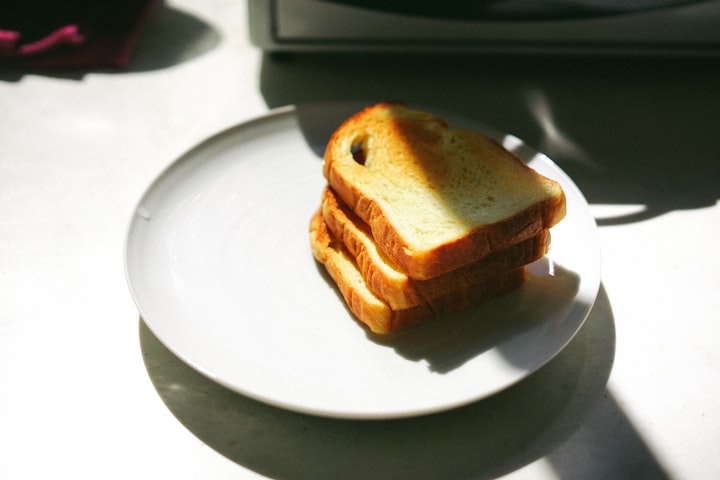The Presidential Dinner That Scandalized America
Guess Who’s Coming to Dinner?

Today’s article involves one of the most famous presidents in US history, President Theodore Roosevelt. He was known for shaking things up and kind of making his own way. In 1901, he did something that wouldn’t seem too controversial to us today. Certainly not. He had someone over for dinner, you know. He’s the president at this time. He’s pretty busy in general. But because he’s the president of the United States, even the smallest of social decisions carry enormous weight in symbolism for the public. It’s not like you or I casually inviting a new friend or new coworker to have some lasagna or something. This is always going to be interpreted as a statement.
Deborah Davis in her fantastic book Guest of Honor: Booker T. Washington, Theodore Roosevelt, and the White House Dinner That Shocked a Nation referred to this situation. African Americans were invited to meet in offices, they, of course, built the White House. They worked for the various presidents, but they were never invited to sit down at the President’s table. And when that happened, the outrage was just unbelievable. And a big reason for that she goes on to say is that in society, the idea of dining together really created almost a code word for social equality. And folks just weren’t ready to accept that fully, despite slavery having been illegal for some time and African Americans, for all intents and purposes, being able to occupy the same social strata as white people.
The guest in question is Booker Taliaferro Washington, an American educator, author, a leader in his community at the time. There’s a double down meaning here, this is something that may have incensed the racist members of the public, in the American South. Traditionally, this time, it was understood that if you invited a male to have dinner with you, and this person was not related to you already, then you were tacitly inviting this man to woo your daughter, like come on in have a meal. Hey, this is my daughter. Isn’t she lovely? She’s, she’s 19. And she’s ready to be married.
You can see, at least according to Deborah Davis, that the primary reason or one of the primary reasons people were so offended, causing them to clutch their pearls was imagining that a black man would be able to have that level of access to a white family, especially the presidential family. Both men, both Washington and Roosevelt, were very much aware of this. And again, gasp, there were going to be women present. Good heavens
Let’s get into the dinner before we get into the outrage, which is gonna come as it’s inevitable. Let’s talk a little bit about why he would have wanted Booker T Washington at a gathering like this where you’re going to talk policy. It was because he was a highly influential leader in the African American community. He founded the Tuskegee Normal and Industrial Institute, born into slavery. He saved up and put himself through school and became an educator after the Civil War. And that’s when he founded that Institute I mentioned earlier in 1881, Alabama, now known as Tuskegee University. So he was along with W. E. B. Du Bois was one of the foremost African American leaders at the time. And Roosevelt would have wanted to hear what he had to say and would have wanted to collaborate with him because Roosevelt thought outside the box.
Theodore Roosevelt was immensely impulsive, legendarily. So, and here’s how it all went out. So he had this pre-existing appointment, and this was a business appointment. They were supposed to compare notes, and Roosevelt was going to get some advice on some Cabinet picks. But then at the very last minute, Roosevelt said, you know, let’s make dinner. And he was going to invite Booker. The story is that he paused for just a second and thought, is this a bad idea? Because of all the stuff we’ve got going on here in the US, and it’s crazy, messed up, I’m paraphrasing. And instantly, he felt deeply ashamed that he even bothered hesitating. And so he sent it out before he could change his mind.

And now Booker T. Washington gets the invitation and he has to decide whether or not to accept the invitation, I would imagine that the immediate impulse, especially for a guy like that, who’d come so far, knew the symbolism of it. But I guess he had to decide if it would look like a betrayal to his community in some way or if it was worth, you know, making that big statement.
He thought, this is going to be problematic for me but I have no right to refuse. And he felt like he had to accept it as a representative of his community. Of course, they knew the s was going to hit the f, I’m going to ask that you fill in whatever initialisms you like, shorts were going to hit the farm or the scoop was gonna hit the France.
A White House reporter put the news of this dinner on the wire service. And this is before they actually ever sit down to eat. There is a massive backlash. The stories that were printed about this are disgusting. They both received separately, death threats. There was of course the cliche racial element to it. And it included accusations that this would make Booker T Washington uppity and that it would fuel ambition in his community. But then there was also criticism saying, you know, Teddy Roosevelt is a publicly elected official, and he has no right to push his private agenda on the public.
Senators spoke out against this. James K. Vardaman. said some things that I’m not going to quote in full because they’re disturbing, but he said something like, the White House is now so saturated with the odor of black that the rats had taken refuge in the stables. Other senators like Benjamin Tillman of South Carolina threatened to kill 1000 people to put them back in their places. The Missouri Sedalia Sentinel published a poem on its front page and titled Black in the White House. I mean, this was a national story, and it’s a chilling look at how normal this sort of discourse was in the early 20th century.
They were vulgar cartoons, characterizing Mrs. Roosevelt and she was a very, very popular First Lady. So all of a sudden to have her maligned so openly for being associated with this because again, she was one of the guests of the dinner as well.
And there wasn’t 100% support in the African American community for Booker T. Washington, there was a radical opponent of his, a fellow named William Monroe Trotter, who showed Booker T. Washington as a hypocrite who support social segregation between blacks and whites while he himself dines at the White House. So everybody, from all angles, had some problems, and they had some stuff to say about this.
It was really just a great excuse to push forth, whatever your particular agenda was, whichever side of the issue you might have found yourself on. You could use it as a way to say, Booker T, you’re selling out, you’re not practicing what you preach, you’re behaving as though you think you are better than your fellow men. And the other side of it would be, Theodore Roosevelt is a sort of heretic, and he is just totally gonna shatter the moral fiber of the country by doing such an outrageous thing. Let’s remember that this is a dinner, that’s it. How interesting social morals must have been in 1901 for people to lose their minds over the story in this way.
It was so widespread that it became a euphemism for hitting on someone’s daughter, you know, it’s like, well, I’m gonna go have dinner with your dad.
People started trying to rewrite history as this was happening. Republicans went into damage control, they wanted to get in front of the story, as they say, in the media today. One idea was, Okay, look, when we report this, let’s call it lunch because somehow lunch is less of a problem. And now we’re going to say, we’re also going to say, hey, Booker T, Washington did not go to the dining room, and there weren’t new women present. The guys were just sitting in the office, their meeting went long. And so they ordered a tray of sandwiches. And for some reason that made people in the south feel less bloodthirsty about it, which is weird because of the power of sandwiches, or the great equalizer of lunch. Maybe they’re like, well, it’s just lunch.
So dinner is the height of social equality. Lunch is a little more just kind of hop in and hop out like it doesn’t require quite as much pomp and circumstance, right?
And so this goes on until the 1930s. Someone finally asked Mrs. Roosevelt, tell us straight was it lunch or was it dinner? She checked her calendar, and she said it was most definitely dinner. And it was still even in Booker T. Washington’s obituary in 1915. It was reported as lunch in his obituary; this was a really weirdly important thing.
We actually wouldn’t know about this dinner if Deborah Davis had not heard about it. Just in passing at John McCain's 2008 concession speech to the newly elected at the time President Barack Obama.
I think it’s wild too that a story that generated headlines or leads, such as this one from the Memphis Seminar that declared this act by President Roosevelt to be the most damnable outrage which has ever been perpetrated by any citizen of the United States. So I’ll stomp Benedict Arnold out of the running total, the assassination of Abraham Lincoln, the Civil War. Everybody in there is officially not as bad. But you ask an influential black man to dinner, and all hell breaks loose.
So, in McCain’s concession speech, which Deborah Davis hears, McCain says, A century ago, President Theodore Roosevelt’s invitation of Booker T Washington to dine at the White House was taken as an outrage in many quarters. America today is a world away from the cruel bigotry of that time. There is no better evidence of this than the election of an African American to the presidency of the United States.
And this hit Davis, she thought, when did Booker T Washington go to the White House, she’s a cultural historian. So that’s obviously going to pique her interest. And then she found that this didn’t even really show up high on Google. She had to hit the books to figure out this story. And we want to thank Deborah Davis for the excellent work here because we forget sometimes how easy it is to lose these tremendous moments.
Teddy Roosevelt was a real pioneer in many respects, like in terms of his hunting prowess. He and his sons went on a crazy hunting expedition once he had retired from the presidency, where he ended up sending back all these specimens. A lot of those are still there today. So he was a very forward-thinking man. It was just an interesting kind of excuse for him to be able to kill some big, wild, exotic game, but you got to give him props for making it about science. But he did a lot of other things, too. He was a man of firsts. He was a huge proponent of experiencing new things and pushing the envelope. And so because of that, we have a lot of presidential first that happened under Teddy Roosevelt’s watch. He was the first president to ride in the submarine.
He was the first to have a telephone in his residence. And this is interesting. He was the first presumably to have a dojo in the White House.
William McKinley, his predecessor was the first president to ride in a car but it was Roosevelt, who kind of codified it and made it part of his job to make the rounds when he took a tour of Hartford, Connecticut in 1902.
But he had one other big first in November of 1906. He did, indeed, he was the first president to leave the US. he hopped aboard the USS Louisiana, to take a tour of the Panama Canal, which was a big project. We take that for granted president’s going on diplomatic trips, you know, it’s just like par for the course. But that’s a big one. He was the first one to leave the country to inspect the canal.
Taking a look at the Roosevelt administration and the enormous race problem in the United States when he was reelected. We see that he firmly believed that all men are created equal, but his administration took a passive approach to improve civil rights. And his successors did much the same thing. It really wasn’t until Lyndon Johnson passed the Civil Rights Act in 1964, that the effort to correct racial discrimination was encoded into law. So it’s been a long road, you know, but dinner started a conversation.
Sources:
- https://en.wikipedia.org/wiki/Booker_T._Washington
- https://www.whitehousehistory.org/booker-t-washingtons-dinner-with-president-theodore-roosevelt
- https://en.wikipedia.org/wiki/Booker_T._Washington_dinner_at_the_White_House
About the Creator
Blessing Akpan
I am a photographer of thoughts, let me capture your soul.






Comments
There are no comments for this story
Be the first to respond and start the conversation.